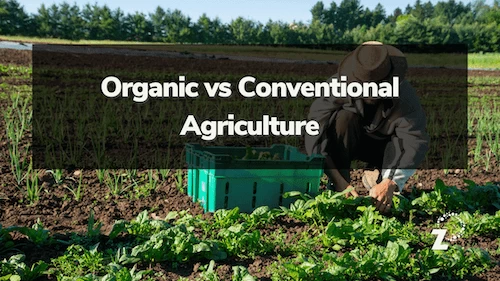The Green Revolution: Harnessing Organic Farming for a Healthier Environment
In recent years, there has been a growing concern about the health of our planet and the impact of human activities on the environment. In the midst of this concern, a vital solution has emerged: organic farming.
This innovative agricultural method has gained considerable attention due to its exceptional benefits for both our well-being and the planet we call home.
But what exactly is organic farming? Simply put, it is a way of producing food that steers clear of synthetic pesticides, genetically modified organisms (GMOs), and chemical fertilizers. Instead, it focuses on utilizing natural techniques that work in harmony with nature, respecting the delicate balance of our ecosystems.
One of the key advantages of organic farming lies in its positive effects on soil quality. Organic farmers utilize compost, animal manure, and crop rotation techniques to nourish the soil, thus promoting its fertility and enhancing its resilience against erosion.
By using natural fertilizers, they not only help to maintain the richness of the soil but also ensure that it remains free from harmful chemicals that can penetrate the food chain.
Moreover, organic farming is a champion of biodiversity. The use of synthetic pesticides has been shown to disrupt ecosystems, negatively impacting beneficial insects, birds, and other organisms essential to maintaining a balanced and thriving environment.
Organic farms actively encourage these diverse species by providing habitats and living conditions that allow them to flourish. This amplifies nature's resilience against pests, diseases, and invasive species, without relying on damaging chemicals.
Another significant environmental benefit of organic farming is the reduction of water pollution. Traditional farming often involves the use of chemical fertilizers and pesticides that can contaminate water bodies, posing a threat to aquatic ecosystems and even human health.
In contrast, organic farming minimizes the risk of water pollution, as it strictly adheres to natural methods that do not involve harmful synthetic compounds.
Furthermore, organic farming plays a crucial role in combating climate change.
Organic practices, such as the use of cover crops and conservation tillage, help sequester carbon from the atmosphere and lock it into the soil, reducing greenhouse gas emissions.
This helps mitigate the impacts of climate change, such as extreme weather events, and supports the long-term sustainability of our planet.
Embracing organic farming not only benefits the environment but also enhances the quality and safety of the food we consume. Organic produce tends to have higher nutrient content, as the soil in which it grows is nurtured and enriched through natural means.
By promoting the consumption of organic food, we foster our own well-being while protecting the environment.
As individuals, we can play a significant role in the organic farming revolution. Supporting local organic farmers and choosing organic products when possible helps create a demand for sustainable agricultural practices.
By doing so, we contribute to the preservation of wildlife, water bodies, and the overall health of our planet.
In conclusion, organic farming has emerged as a vital tool in the quest for a sustainable and environmentally friendly future.
By shifting our focus from synthetic to organic farming practices, we empower ourselves to make a positive impact on our planet, while enjoying healthier, more nutritious food. Together, let us unite in the green revolution and sow the seeds of a greener, cleaner, and brighter future.




